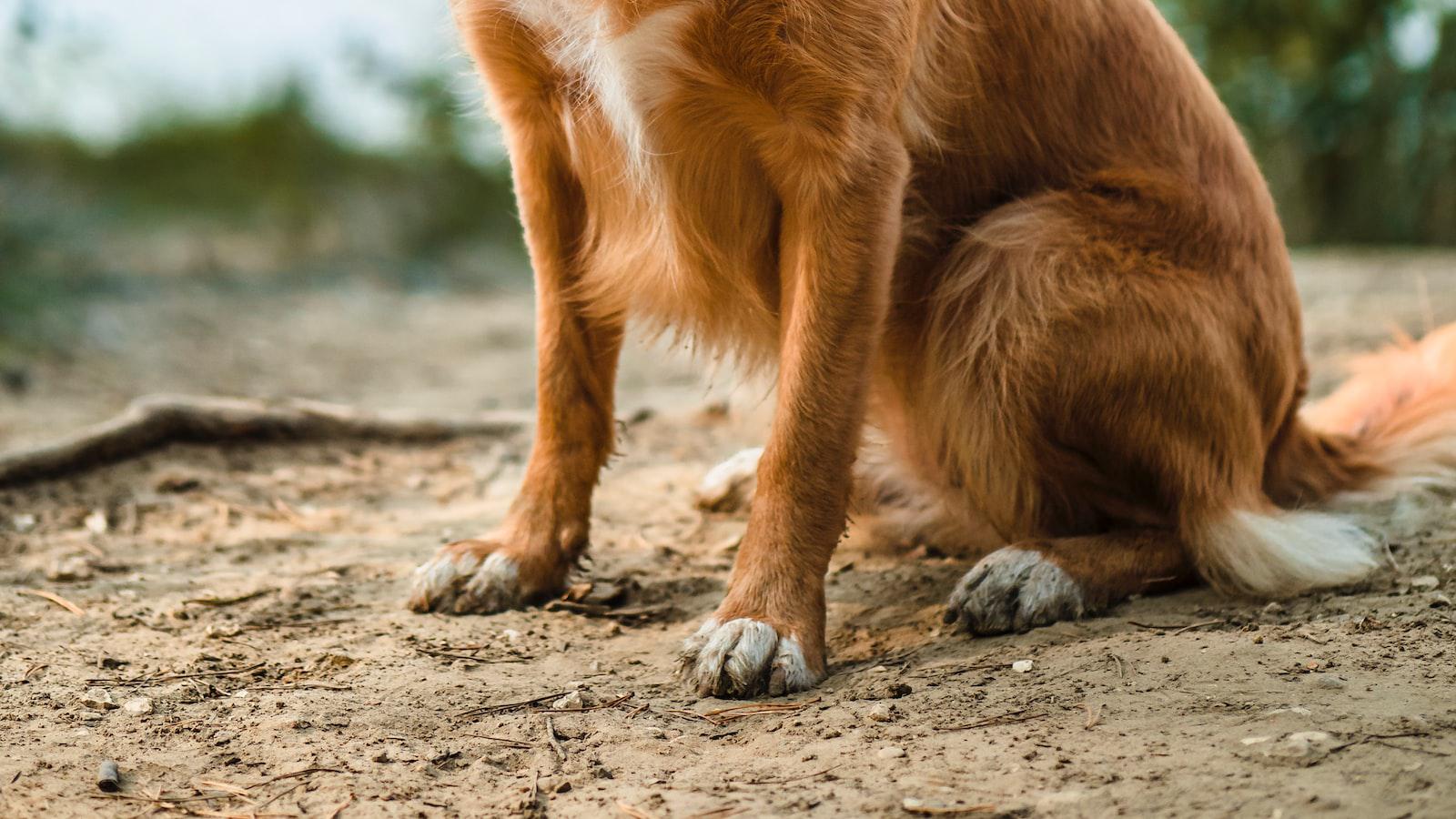Have you ever wondered why dogs seem to have an uncanny ability to bounce back from illness so effortlessly?
I mean, seriously, it’s like they possess a magical shield that repels any germ or virus that even dares to come their way.
While we humans have our fair share of sniffles, sneezes, and doctor visits, our furry friends often strut around unscathed, wagging their tails and flashing those adorable puppy eyes as if to say, “Sick? Who, me?”
Join me on a journey to explore the fascinating world of dog immunity, as we attempt to unravel the mystery behind why, oh why, do dogs not get sick?
Understanding the Immune System of Dogs
When it comes to staying healthy, dogs truly have an edge.
Compared to us, they have a far rarely chance to fall prey to infections and illnesses.
This is all thanks to their remarkable immune system that works tirelessly to protect them from a world full of pathogens.
One major factor contributing to dogs’ strong immune systems is their genetic makeup.
Dogs have evolved over thousands of years, adapting to various environments and diseases.
This process of natural selection has allowed only the fittest canines to survive and reproduce, passing on their superior immune genes to future generations.
As a result, today’s dogs possess a diverse gene pool that equips them with a wide range of defense mechanisms against pathogens.
Another key reason is dogs’ impressive ability to produce antibodies.
These magnificent creatures boast a unique protein structure that enables their immune system to recognize and neutralize harmful invaders like bacteria, viruses, and parasites.
Moreover, dogs have the extraordinary capacity to generate a vast array of antibodies, making them highly adaptable to a multitude of disease-causing agents.
This inherent flexibility allows their immune system to swiftly respond to new threats, which helps them stay fit and disease-free throughout their lives.
And unlike humans, dogs don’t require as many antibodies to achieve effective immune responses, which is why they often seem to breeze through illnesses that would leave us bedridden.
Moreover, dogs have an incredible ability to adapt.
Their bodies can quickly respond to changes in environment and potential threats.
For instance, their skin is highly resistant to infections, with thick, protective layers that act as a barrier against pathogens.
Additionally, dogs possess an extraordinary sense of smell that goes beyond their ability to sniff out treats hidden under sofas.
It turns out that this extraordinary sense also aids their immune system.
Dogs can detect subtle changes in the scent of humans, making them superb at recognizing ailments and diseases.
They can identify specific scents that indicate whether a person is healthy or unwell.
This remarkable ability, combined with their keen senses, makes dogs valuable partners in the field of medical detection and therapy.
From sniffing out cancer to detecting low blood sugar levels, our canine friends are an invaluable asset to our health and well-being.
Another intriguing aspect of a dog’s immune system is its efficient detection and elimination of abnormal cells in their bodies.
Dogs have an innate ability to identify and destroy cancerous cells, making them less susceptible to certain types of cancers than humans.
Their immune cells, such as killer T-cells, patrol their bodies to detect and destroy these abnormal cells before they have a chance to proliferate.
This natural defense mechanism provides them with an added layer of protection against cancer, contributing to their overall well-being.
Tips to Keep Your Dog Healthy and Boost Their Immune System
While a dog’s immune system has plenty of tricks to keep itself healthy, it’s not invincible.
Your pooch still needs your help in order keep its immune system strong enough to fight off any pathogens trying to infect it.
If you’re wondering how to keep your furry friend in tip-top shape, here are some helpful tips to ensure your dog stays healthy:
Provide a balanced diet: Just like humans, dogs need a balanced diet to stay healthy.
It’s important to remember that dogs are primarily carnivores, so their diet should be high in protein.
This can be easily achieved by feeding them a commercial dog food that is rich in animal-based ingredients.
Look for products that list real meat, such as chicken, beef, or fish, as one of the first ingredients.
In addition to protein, dogs also require a healthy dose of carbohydrates and fats in their diet.
Whole grains, such as brown rice or oats, can provide the necessary carbohydrates.
These grains are a great source of energy and are also rich in vitamins and minerals.
When it comes to fats, opt for healthier options like fish oil or flaxseed oil, which are packed with omega-3 fatty acids that support your dog’s immune system and promote healthy skin and coat.
If you’re not sure, don’t be afraid to consult your veterinarian for specific dietary recommendations based on your dog’s breed, age, and health conditions.
Remember, a well-nourished pup is less likely to fall ill.
Regular exercise: Dogs are natural athletes! Regular exercise not only keeps them physically fit but also plays a crucial role in boosting their immune system.
It helps prevent obesity, strengthens their muscles, and promotes overall well-being.
Take your furry companion for daily walks, let them run freely in a safe environment, or engage in fun activities like playing fetch.
The key is to find activities that make your dog happy and keep them active.
Maintain a clean environment: A clean living space is a happy and healthy space for your dog.
Regularly sanitize their bedding, toys, and food bowls to prevent the buildup of harmful bacteria.
Ensure your dog’s living area is free from potential hazards and toxins.
Regularly brush their coat to remove dirt, debris, and parasites.
Remember, a clean dog is less susceptible to infections and allergies!
The Importance of Regular Veterinary Check-ups for Dogs
Regular veterinary check-ups are crucial for dogs to ensure their overall health and well-being.
These check-ups allow veterinarians to detect any potential health issues early on, preventing them from progressing into more serious conditions.
During these visits, veterinarians will conduct a thorough physical examination of your furry friend, checking their vital signs, teeth, ears, eyes, and coat.
They may also recommend additional tests such as blood work or x-rays to further evaluate your dog’s health.
One of the main benefits of regular veterinary check-ups is the opportunity for vaccinations and preventive care.
Vaccinations protect dogs against infectious diseases such as distemper, parvovirus, and rabies, which can be life-threatening.
Preventive care, such as flea and tick control, heartworm prevention, and deworming, can also be administered during these visits.
These measures are essential for ensuring your dog’s immune system is strong and able to fight off infections and diseases.
In addition to preventive care, regular veterinary check-ups allow for early detection of any underlying health conditions.
Dogs, just like humans, can suffer from various illnesses and conditions as they age, including arthritis, dental problems, and even cancer.
During a check-up, veterinarians can identify any signs or symptoms that may indicate an underlying condition and take appropriate action.
Early intervention can greatly improve outcomes and help your dog live a longer, healthier life.
Remember, regular veterinary check-ups are not only about treating illnesses but also maintaining your dog’s overall health.
By partnering with your veterinarian, you can provide the best possible care for your furry companion and ensure they lead a happy and healthy life for years to come.
So make those appointments, follow their recommendations, and cherish your four-legged friend’s well-being.
FAQ
Q: Why do dogs appear to be less prone to illness than humans?
A: Well, it’s not that dogs are immune to sickness, but their immune systems work in marvelous ways that often keep them in the pink of health.
Unlike humans, who tend to stress and overthink, dogs live in the moment.
They’re not worried about tomorrow’s deadline or the political drama on TV.
Their carefree outlook may contribute to a stress-free life, which positively affects their immune systems.
Q: How does a dog’s diet contribute to their robust health?
A: Imagine a dog’s diet as a superhero suit for their immune system.
By providing proper nutrition, we are essentially fueling their bodies with the energy they need to fight off infections and diseases.
A balanced diet rich in essential vitamins, minerals, and lean proteins helps strengthen their immune system and keeps them feeling top-notch.
Q: Can spending time outdoors impact a dog’s health positively?
A: Absolutely!
Dogs thrive on fresh air and exercise.
When dogs romp around outdoors, their bodies absorb vitamin D from the sun, just like humans.
Vitamin D plays a vital role in regulating their immune system, maintaining strong bones, and boosting overall well-being.
Plus, being outside exposes them to a diverse range of bacteria, which, paradoxically, can strengthen their immune response and reduce the likelihood of allergies and autoimmune diseases.
Q: Do dogs have something special in their immune system that sets them apart?
A: Dogs have an innate ability to produce antibodies faster than humans.
These incredible defense mechanisms neutralize harmful bacteria, viruses, and other pesky pathogens.
Additionally, dogs have a heightened sense of smell, allowing them to detect subtle changes in their environment, including those caused by illness.
This built-in early warning system helps them stay protected.
Q: Can the strong bond between dogs and humans affect their well-being?
A: Most definitely!
Dogs are renowned for their unwavering loyalty and unconditional love towards their human companions.
This emotional connection is mentally and physically beneficial for both parties.
Studies have shown that being around dogs reduces stress, anxiety, and depression in humans.
It’s a two-way street of positive energy and well-being!
Q: Anything else we should know about our furry companions and their remarkable health?
A: Dogs come in different shapes, sizes, and breeds, with unique genetic makeups.
While their general resilience to sickness is impressive, it’s important to remember that every dog is an individual with specific health needs.
Regular vet check-ups, vaccinations, and practicing good hygiene are crucial to ensure they lead long and healthy lives.
So, let’s cherish our amazing four-legged friends and give them the care they deserve!
Farewell for Now
From their remarkable immune systems to their natural instincts, our furry friends have some impressive tricks up their sleeves.
Their immune systems, like fearless superheroes, have evolved to recognize and combat harmful invaders.
These systems work tirelessly, producing all sorts of weapons like antibodies to keep diseases at bay.
Of course, a healthy diet, regular exercise, and regular veterinary check-ups all also contribute to a dog’s wellbeing.
These essential factors keep their immune systems strong and ready to fight any potential threats, ensuring they stay fit and full of wagging happiness.
But remember, even though dogs may seem like superheroes in the realm of health, they’re not invincible.
Just like us, they can still fall ill or face health challenges.
That’s why it’s crucial for us dog parents to provide them with the care and love they deserve, making sure they receive the necessary vaccinations, good nutrition, and regular vet visits.
So next time you marvel at your four-legged companion’s infectious energy and limitless enthusiasm, remember that their robust immune systems, instincts, and a little help from us are what keep them going strong.
Cherish these furry bundles of joy and continue to give them the best life possible.
After all, they’re here to brighten our days, and together, we can ensure they live the happiest, healthiest lives imaginable.














